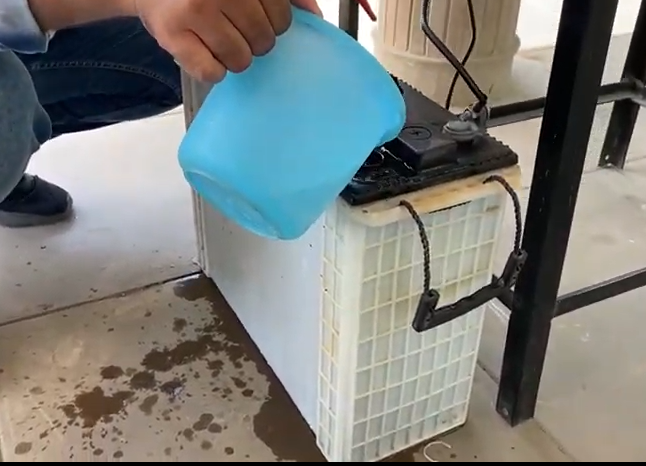Lithium Battery Prices Drop in India for Inverters & UPS
Power Up Your Savings: Lithium Battery Prices Drop in India for Inverters & UPS
Power Up Your Savings: Lithium Battery Prices Drop in India for Inverters & UPS Lithium-ion batteries are becoming increasingly popular for inverters and UPS systems in India due to their numerous advantages over traditional lead-acid batteries. They offer a longer lifespan, deeper discharge cycles, faster charging times, and lighter weight. However, the price difference is becoming at par with the Lead Acid batteries. The year 2024 is expected to bring the prices of tubular lead Acid batteries to the Lithium-ion battery pricing. https://www.thehindubusinessline.com/markets/commodities/lithium-prices-likely-to-drop-further-on-surplus-output/article67731781.ece
Here’s a breakdown of the typical price range for lithium-ion batteries for inverters/UPS in India, depending on their capacity.
The 12V 80Ah Lithium battery price is Rs 15,000 to 17,000, which comes to be the 1 Kw price of lithium battery in India, which used to be Rs. 20,000 per KW.
The 24V battery of 2.4 KW costs Rs. 30,000-35,000 as a retrofit lithium-ion battery, which can fit with any existing inverter/UPS or solar system on the market.
The 48V Lithium-ion battery with 4.8 KW capacity will cost around Rs60,000-70,000 in the Indian market as a retrofit Lithium-ion battery.
The Life of the Lithium battery compared to the Tubular battery: The Life of the Tubular Lead Acid battery is 1/4th of the Lithium Battery as the Lithium battery can give a 3000-cycle life, whereas the Tubular battery has a maximum of 400-500 cycles if we refill the battery water in time. Distilled water is used to top off the storm.
The size of the Tubular Lead Acid battery vs the size of the Lithium battery: The size will also be one-fourth of the Tubular Lead Acid battery.

Lithium battery 12V 80Ah
Su-vastika Lithium-ion battery 12.8V

Tubular battery 12V/150Ah capacity
The weight of the Tubular vs. Lithium Battery The 150 AH tubular battery weighs 60 Kg minimum, whereas the Lithium battery is just 11 kg, an 80 Ah lithium battery.
The charging time of Tubular vs the charging time of Lithium battery: This is another factor that makes them utterly different as the Lithium battery can be charged in 2 to 3 hours whereas the Tubular battery takes 12 to 15 hours to charge.
Capacity: The Tubular Lead Acid battery comes as a C1 capacity, and the Tubular Lead Acid battery comes in C20 battery which makes a huge difference between these two batteries as we need half the capacity in Lithium-ion battery compared to tubular Lead Acid battery.

Backup chart comparison between Tubular lead Acid and lithium-ion battery
The cost of charging Tubular Vs Lithium battery: The Lithium battery is charged in two steps and once charged, doesn’t need trickle charging. The Lithium Lead Acid battery will be charged in 4 to 6 stages, which consumes more power. Lastly, trickle charging maintains the tubular battery’s gravity intact, and the tubular battery’s self-discharge is much higher than that of lithium batteries. So, the Tubular battery gets more electricity for charging, which is a big waste of power and an extra financial burden on the user.
Lithium has built-in BMS, so it will minutely control all the parameters in Lithium.
The construction of a Tubular battery is unregulated compared to the structure of a Lithium battery cell. No two batteries can match in backup time in the case of Tubular Lead Acid batteries as the construction of each cell can’t be matched, whereas the Lithium is controlled. All the cells are sorted before the battery is made, and equal cell voltage cells are separated by measuring the IR values so that the battery does not have a mismatch in the cell’s IR value.
Maintenance of Tubular Vs Lithium battery: The maintenance of Tubular batteries for refilling battery water is a big headache. The timing of refilling can’t be measured beforehand, so generally, users forget to refill the water in time after refilling the Tubular battery; another major challenge is spillage, which could destroy the floor, which happens in most households and offices.
The Abuse of Lithium Vs Tubular Battery: The Lithium battery has a built-in BMS called Battery Management System, which handles charging and discharging over voltage and under voltage of the battery pack. Hence, no abuse is possible as the BMS very well protects it. Whereas there is no such protection in the Tubular Lead Acid battery, all such conditions can happen and shorten the Tubular battery’s Life.
The explosion of Tubular is a common problem, and the Lithium LifePo4 technology has a safety history: there have been numerous instances where the Tubular batteries have blasted. People got killed, and the Lithium battery, especially LifePO4, has been the safest in the world, and no such significant accidents have occurred so far.
Repair of Tubular Lead Acid Battery compares to Lithium battery pack: The Tubular battery once declared dead or overcharged or one cell fails, then that battery goes for the waste selling whereas the Lithium battery can be repaired very quickly as one cell or two cells can be replaced easily in the Lithium battery pack.
Pollution by the Tubular batteries: Tubular Lead batteries create pollution by emitting Lead fumes, which are very dangerous for people in the vicinity. Lithium has no such challenge. It’s completely safe, as everyone has used lithium batteries in their mobile phones, laptops, etc., for two decades. https://suvastika.com/lead-acid-battery-health-hazards-in-inverter-ups-industry/
Applications
Lithium batteries are well-suited for all kinds of applications as they are small and can be placed anywhere. Tubular lead acid batteries have many limitations in size, weight, maintenance, and Life. Applications with limited space, such as electric vehicles, mobile phones, Laptops, medical equipment, etc. or Inverter/UPS and solar power systems. They are also a good choice for applications where long lifespans and fast charging are essential.
It’s important to note that these are general price ranges, and the actual price can vary depending on several factors, such as:
- Brand: Well-known brands like Luminous, Exide, Amaron, and Su-vastika are bringing in different ranges of lithium batteries to replace the tubular batteries in the solar, inverter, and UPS ranges. The Su-vastika brand was launched by Mr. Kunwer Sachdev, founder of Su-kam, known for his innovation and quality in the industry.
- Exide, Amaron, and Su-vastika have already launched the lithium battery built-in UPS range, which is compact and attractive.
- Battery type: Lithium iron phosphate (LiFePO4) batteries are generally more expensive than lithium-ion batteries but offer longer lifespans and better safety.
- Features: Batteries with additional features like built-in Bluetooth or Wi-Fi connectivity and a Digital warranty are also available.
- Warranty: The digital warranty launched by Su-svastika Lithium-ion batteries is another innovation in the industry.
Here are some additional tips for buying a lithium-ion battery for your inverter/UPS in India:
- Do your research: Read reviews and compare prices from different brands and retailers before purchasing. As there are people in the industry who have no such experience.
- Consider your needs: Consider how much power you need your inverter/UPS to provide and how long you need it to run on battery backup. Choose a battery with the appropriate capacity.
- Don’t skimp on quality: Buying a high-quality battery from a reputable brand is essential to ensure safety and performance. One should see the brand’s reputation and the certifications and patents before buying from them.
- Get a warranty: Make sure the battery you purchase is soundproof for a minimum of 3 years or a maximum of 5 years in the industry.
Power Up Your Savings: Lithium Battery Prices Drop in India for Inverters & UPS is an article written by Kunwwer Sachdev founder Su-kam known as Inverter man of India and mentor of Su-vastika.

 Su-vastika
Su-vastika

 Su-vastika
Su-vastika Su-vastika
Su-vastika
I want to buy su vastika lithium battery of 24 v